UK businesses, not African countries will profit from new trade plans
Last week, the UK’s first-ever ‘trade week’ came to an end. New trade measures, along with the Developing Countries Trading Scheme (DCTS) and the new rules enabling the UK Export Finance agency to give larger loans for companies to export from the UK, have been officially presented as part of the UK’s development leadership package.

They are a means to enable developing countries “to diversify their exports and grow their economies”, to help “deliver a greener future”, while at the same time allowing British households and businesses to benefit from lower prices and more choice. But the reality is the greatest winners will be British business. Here’s how.
According to Amanda Milling, UK FCDO Minister of State: “In 2020, the UK imported more than £30bn ($40.1bn) in goods and services from developing and least developed countries with preferential trading arrangements, supporting their growth and poverty reduction.”
Imports and exports
Encouraging numbers but context is everything. What Minister Milling fails to mention is that the UK also imported $658bn worth of goods and services in 2019, the majority ($396bn) coming from Europe. If we compare this to Africa, the continent with the highest proportion of developing countries, the UK only imported a tiny $4.5bn – that’s 3%. As a result, in 2019, out of Africa’s 55 countries, only 13 had a trade surplus with the UK.
But it’s not just the quantity of imports that is important but the ‘type’ of import when it comes to job creation and sustainable growth.
The majority of these 13 countries are exporting raw, unprocessed goods, such as crude oil to the UK.
Take Nigeria for example. In 2019, the UK imported $1.45bn worth of goods but 87% of this was crude oil. South Africa, as the UK’s biggest trading partner on the continent, is another example. In 2019 the UK imported $6.61bn worth of goods from South Africa but 72% of these were gold and platinum.
Overall, only three of the 13 African countries are exporting some type of ‘finished product’ to the UK – Madagascar being the main example whereby 53% of exports are textiles and knitwear.
These numbers clearly show that reimagining British trade with developing countries – in particular African countries – is urgently needed, especially in the context of the UK’s recent decision to renege on a dual domestic and international legal commitment to provide 0.7% of its GNI as aid to developing countries.
Developing countries trading scheme
So will the new flagship schemes help? The government’s scheme specifically targeted at increasing imports from poor countries is the newly announced ‘Developing Countries Trading Scheme’ (DCTS) – which promises duty-free, quota-free access to 46 Least Developed Countries, most of whom are African, including many of the UK’s former colonies, and special tariff reductions to other developing countries.
This scheme is not really new. Back in 1979, an international decision was taken under the then General Agreement on Tariffs and Trade (GATT) – which eventually turned into the WTO, that enabled ‘developed members’ – such as the UK – to impose zero or lower taxes for goods from developing countries.
For a long time, the EU maintained a Generalised Scheme of Preferences (GSP) in relation to developing countries and the UK pre-Brexit was therefore administering the EU GSP.
Following Brexit, the UK decided to maintain a GSP – and back in August, the UK Department of International Trade (DIT) started seeking views on the newly branded scheme scheduled to take effect in 2022. The views sought were on issues such as to what degree goods had to be “fully” made in the poorer country or how much they can be partially made elsewhere (known as “rules of origin”), whether there should be any exemptions for different products, and also any conditions and reporting requirements attached to the countries that qualify in principle for the preferential treatment.
What are the problems?
This all sounds good in principle, but three major problems reveal why – as currently designed – this scheme will do little to help poor countries.
First, the DCTS does not address the key problems that African businesses – in particular SMEs that are at the centre of driving poverty reduction and innovation – have faced in entering the UK market to date.
For example, the UK has burdensome measures which are branded as ways to make sure goods are safe to sell, but often act as protectionist measures – or Non-Tariff Barriers (NTBs) in technical speak.
Take labour standards – which can seem perfectly reasonable to a liberal British audience. But the fact is that many countries that call under the UK GSP do not have the financial or human resource capacity to meet the labour standards compliance requirements, and this has a huge impact on market access, limiting the capacity of firms in these counties to create jobs for people, limiting sustainable development.
Stringent Sanitary and Phytosanitary Measures for agricultural products – branded as quality control rules – have the same impact. It means that all too often, there is little shift in trade patterns once schemes like this are announced, and huge trade deficits remain.
Second, the priority for the government appears to be how UK businesses can benefit. Although DIT purported to be soliciting opinions from everyone during the August consultation – whether citizens or businesses in poorer countries or the UK – the design was heavily skewed towards perspectives from UK businesses.
The online questionnaire, which asked over 100 questions, was highly technical, focused on understanding the impact the GSP would have on UK businesses already exporting to the UK.
There was no opportunity to provide practical ideas on how the DCTS could support UK interests and have the biggest development impact – for example by incentivising trade in a broader range of products or supporting low-cost manufacturing in developing countries of certain high-demand products. There was also no opportunity to think out of the box – for example how the DCTS could take into account new trade agreements that have come into being since Brexit – such as the AfCFTA.
Third, since the consultation, the government’s other two new trade measures – the trade week and export finance adjustments – have been focused exclusively on increasing UK exports to other countries, potentially widening the trade deficits that 42 African countries and others currently experience.
Yet, there are alternative, reimagined paths for UK’s global trade footprint. It isn’t by chance, for instance, that Madagascar is one of the 13 African countries exporting processed goods to global Britain. The UK has actively been working with businesses in Madagascar to increase their competitiveness and connect them to buyers in the UK. This has created 650 new jobs and an extra $4m in exports so far and shows how trade and development can work side by side, with benefits to UK consumers.
Bottom line
At a time when the UK is cutting aid to developing countries, the UK needs to start seriously delivering a positive global impact through its trade, not just helping the usual suspects continue their businesses, or worse, imposing more conditions on countries already facing poverty.

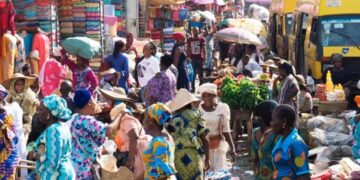

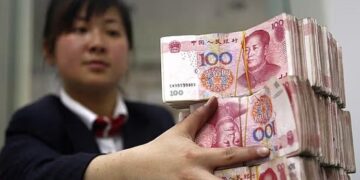

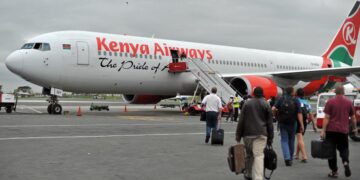





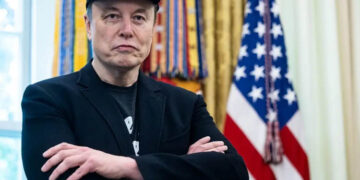






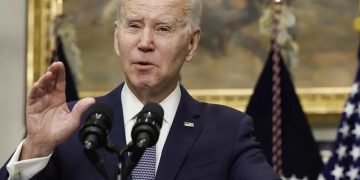
![[Kenya] Digital credit provider Tala disbursed Sh240 billion in loans in eight years 19 [Kenya] Digital credit provider Tala disbursed Sh240 billion in loans in eight years](https://theafricanbusiness.com/wp-content/uploads/2023/02/TALA-APP-360x180.jpg)













